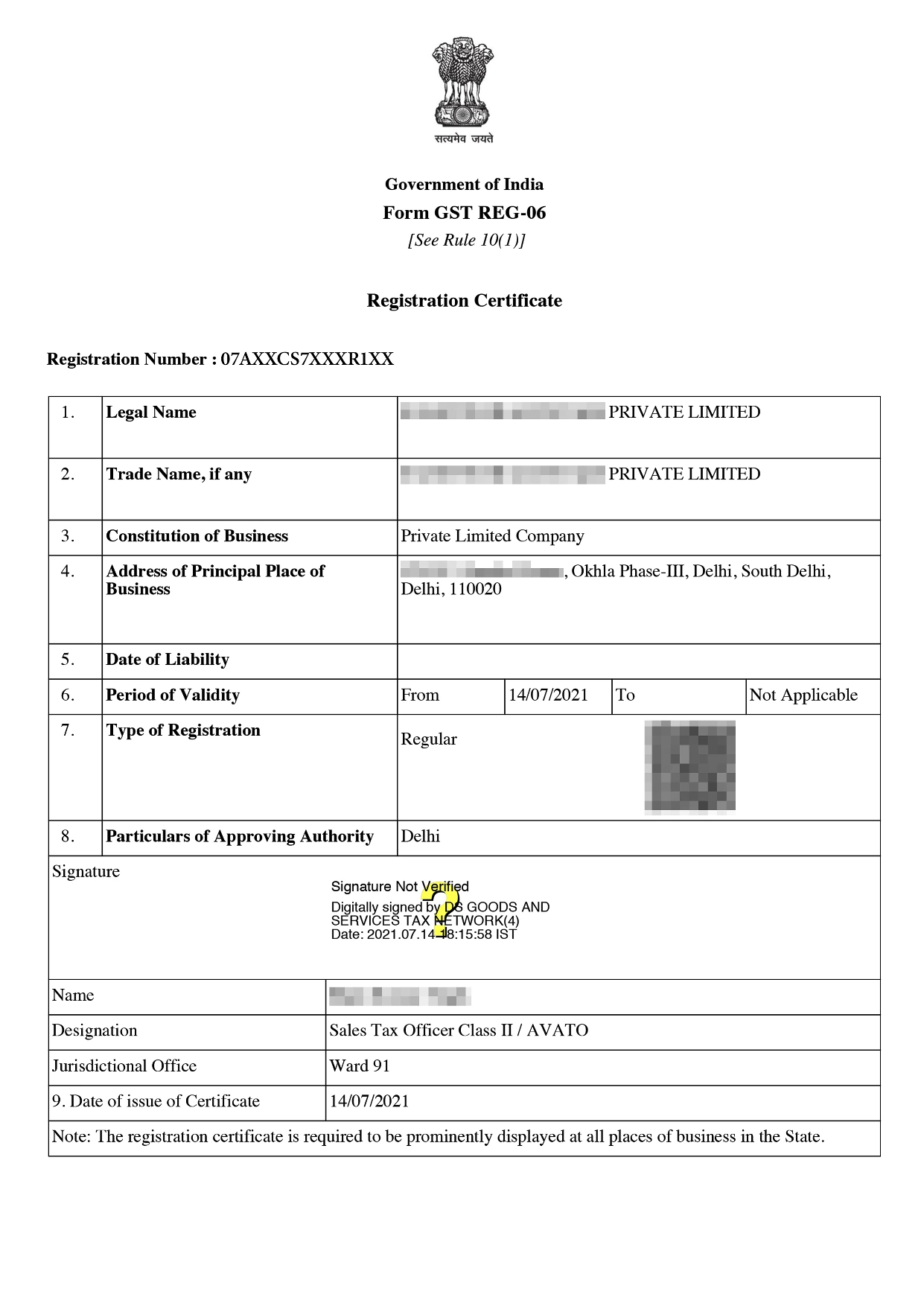Updated on October 25, 2025 11:07:15 AM
NGOs (Non-Governmental Organizations) are involved in addressing social, environmental, and community issues. Although NGOs are not run for profit, they might still be required to register for GST in India depending on what they do and how much they earn.
If an NGO supplies goods or services and its annual income is over ₹20 lakh (or ₹10 lakh in special category states), it has to obtain GST Registration. Also, if the NGO earns income by way of training, consultancy, or by fee for events or services, or by way of grants pertaining to the supply of goods or services, GST provisions could be applicable.
By getting registered under GST, an NGO can collect tax, file GST Returns, claim input tax credit, and remain legally compliant. Although they do not intend to make profits, a GST registration keeps NGOs financially transparent, enhances efficiency, and earns the trust of donors.
It also becomes easier for them to work with government departments and companies, especially for CSR (Corporate Social Responsibility) projects. In short, GST registration keeps NGOs within the law and working in a more organized and trusted manner.
Online GST Registration Sample

GST Registration is compulsory tax compliance for Private Limited Companies involved in the supply of goods or services in India. It enables businesses to collect GST from customers legally and claim input tax credit (ITC) on purchases.
On registration, the company is assigned a GST Identification Number (GSTIN), which needs to be printed on invoices and tax returns. GST registration assists businesses in avoiding penalties, accessing greater market reach, and maintaining streamlined tax compliance. The process of registration is fully online on the government's GST portal and involves basic company documentation like the PAN card, incorporation certificate, bank information, and director details.

Though NGOs are incorporated for not-for-profit objectives, GST Registration provides various operational and financial advantages. Below are the key benefits of obtaining GST registration for NGOs:
Here’s a list of essential documents needed for a NGO to apply for GST registration:
| Document Type | Purpose/Details |
|---|---|
| PAN Card of the NGO | Mandatory for identification and tax registration |
| Certificate of Registration | Proof of NGO registration under the Societies Act, Trust Act, or Section 8 Company |
| MOA / Trust Deed / By-laws | To verify the objectives and functioning of the NGO |
| ID Proof of Authorized Signatory | PAN card and Aadhaar card of the person authorized to act on behalf of the NGO |
| Photograph of Authorized Signatory | Passport-size photo of the person signing the application |
| Address Proof of Office | Electricity bill, rent agreement, or NOC for the NGO’s principal place of business |
| Bank Account Proof | Cancelled cheque, bank statement, or passbook's first page |
| Email ID and Mobile Number | For OTP verification and future communication |
| Digital Signature Certificate (DSC) | Required for signing and submitting the GST application online |
The GST registration process for an NGO is completely online and can be completed through the official GST portal. Here’s a comprehensive 8-step guide to help you through the process:
GST registration for a NGO is an important but detailed process. If you choose to do it yourself on the GST portal, there are no government fees. However, if you want to save time and avoid hassle, you can go for Professional Utilities' expert service. They help you with the complete registration process for just ₹1499, making it quick and easy.
| Particulars | GST Registration Fees (INR) |
|---|---|
| Government Fees | ₹0 (No charges for self-registration under GST law) |
| Professional Fees | ₹1499 (charged by Professional Utilities for expert assistance) |
Conclusion
GST registration is a necessary process for NGOs that are carrying out taxable activities or have crossed the specified turnover threshold. Though GST registration is not mandatory for all NGOs, the ones that carry out services such as training, consultancy, or interstate operations will be highly if they are GST-compliant. It does not only secure legal compliance but also promotes transparency, credibility, and operational effectiveness.
With a valid GSTIN, NGOs can claim input tax credits, enhance fund management, and freely engage with government and corporate sectors, particularly for CSR activities.

At Professional Utilities, we leverage our industry knowledge and expertise to help businesses navigate complex regulations, minimize risks, and optimize operations for maximum efficiency and profitability.






"Explore how Professional Utilities have helped businesses reach new heights as their trusted partner."

It was a great experience working with Professional Utilities. They have provided the smoothly. It shows the amount of confidence they are having in their field of work.

Atish Singh
It was professional and friendly experience quick response and remarkable assistance. I loved PU service for section 8 company registration for our Vidyadhare Foundation.

Ravi Kumar
I needed a material safety data sheet for my product and they got it delivered in just 3 days. I am very happy with their professional and timely service. Trust me you can count on them.

Ananya Sharma
Great & helpful support by everyone. I got response & support whenever I called to your system. Heartly thanx for Great & Super Service. Have a Great & Bright future of team & your company.

Prashant Agawekar
Thank you so much Professional Utilities team for their wonderful help. I really appreciate your efforts in getting start business. Pvt Ltd company registration was smooth yet quick.

Abhishek Kumar
I applied for Drug licence and company registration and their follow-up for work and regular updates helped me a lot. They are happily available for any kind of business consultancy.

Vidushi Saini
Great experience went to get my ITR done, process was quite convenient and fast. Had a few queries, am happy about the fact those people explained me all things I wanted to know.

Taniya Garyali
Great services provided by Professional Utilities. They are best in this industry and the best part is their prices are so affordable. Kudos to you. Now you guys are my full-time consultant.

Aftab Alam
Frequently Asked Questions (FAQs)
GST registration is mandatory if the NGO's turnover exceeds ₹20 lakh (₹10 lakh for special category states) or if it provides taxable services such as consultancy, training, or event management.
Yes, NGOs registered under GST are eligible to claim input tax credit on the GST paid on goods and services used for their operations, thereby reducing costs.
A charitable trust is exempt from GST if it provides goods or services for charitable purposes without charging a fee. If it earns income from business activities, GST applies only to the taxable portion.
Yes, an NGO needs GST registration only if its annual turnover exceeds the threshold or it engages in taxable supplies.
Typically, it takes 7 to 10 working days to complete the GST registration process, provided all documents are in order.
NGOs are mostly income tax-exempt on donations, but must pay GST on taxable goods or services at applicable rates, usually 5% or 12%.
Yes, especially for NGOs registered as Section 8 Companies, a DSC is mandatory for digitally signing the GST application.
No, donations or grants received by a charitable trust or NGO are not considered as consideration for any supply of goods or services and are therefore not subject to GST.
Speak Directly to our Expert Today

Reliable

Affordable

Assured
Industries Served by
Professional Utilities
Apparels
Footwear
Furniture
Gems and Jewellery
Tourism & Hospitality
Consumer Electronics
Chemicals
Telecom
Oils & Gas
Hotel
Railways
Liquor
Health & Medical
Food Processing
Dangerous/ Haz. Goods
Tea & Coffee
Capital Goods
Recycling
Rubber
NGOs
Silk
Handloom
IT & BPM
Steel
Automobile
Tobacco
Constructions